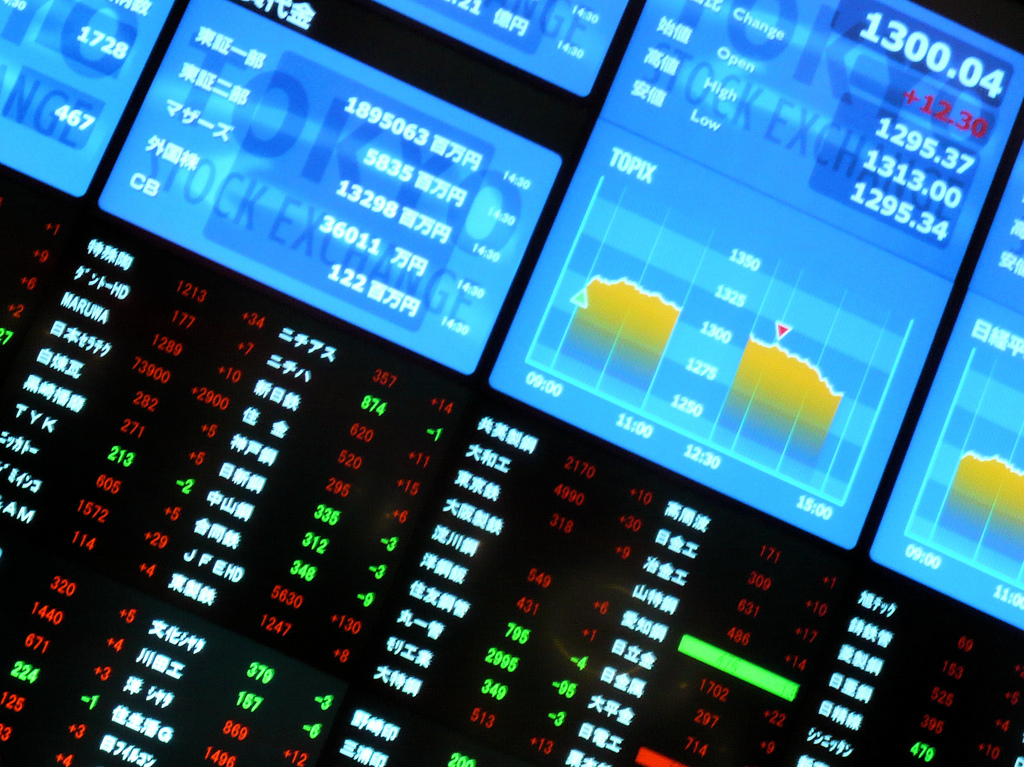In 2018, the market returned to significant volatility. Stocks in developing countries are outperforming other asset classes - from US stocks to gold, bonds and commodities - in terms of yield adjusted for volatility. This does not change either the more than 40% increase in price fluctuations in emerging markets this year, nor the one-week decline that corresponded to the worst recession after the election of Donald Trump as president of the United States.
After the hot start of the year, participants in global markets are cautious, as fears are growing that the appetite for risk and the hunt for higher returns have gone too far. Technical signals indicate a decline in the short term, and volatility indicators show a sharp increase.
The volatility index of the Chicago Board Options Exchange (CBOE), also known as VIX, or the index of fear, jumped by 68% this year. Similar indicators for Europe and emerging markets rose by at least 42%.
If the bonds continue to decline, and the weakening dollar will cause the US Federal Reserve System (FRS) to accelerate tightening of monetary policy, volatility may further intensify. Investors can start looking for assets that will provide them with higher risk-adjusted returns.
Shares of developing countries today are cheaper than before the presidential elections in the United States, compared with the shares of the US and other developed countries. Lower valuation and higher profit forecasts can give investors the comfort needed during turbulence.
As previously reported, the markets were swept panic: world indices showed a fall of 3-6% per day.
It all started in the US market. On Friday there was a decrease of about 2%. On Monday the fall continued. Yields of bonds went down sharply, and stock quotes finished the day with a fall of about 3.5%. The panic spread to the auctions in Asia. On Tuesday, the Japanese Nikkei 225 fell 4.73%, Hong Kong's Hang Seng lost about 5%. The consolidated index of the largest European enterprises Stoxx Europe 600 at the opening of trading on Tuesday fell by 2.8%. This is the maximum decline since June 2016. The rise in volatility has become almost the strongest during the recent crisis.
According to a survey conducted by Bloomberg, the growth gap between developing and developed countries will increase in the next two years. The GDP growth of emerging markets is expected to accelerate from 4.5% this year to 5% in 2019. At the same time, growth in advanced economies is projected to slow from 2.2% to 1,9% during this period.
This discrepancy makes the shares of developing countries more attractive, says JPMorgan Asset Management strategist Gabriela Santos. According to her, investors' demand reinforces the expectations of double-digit growth in profits and stable currencies. JPMorgan Asset Management prefers shares in developing countries, while considering dollar bonds expensive and most vulnerable to higher rates in the US.
However, this year the rally has made some stocks overvalued, believes Erik Zipf, a portfolio manager at DuPont Capital Management. According to him, the prices for shares in the Chinese Internet sector and consumer goods are overstated, and the best value can be found, in particular, in Brazil and South Africa.
source: bloomberg.com
After the hot start of the year, participants in global markets are cautious, as fears are growing that the appetite for risk and the hunt for higher returns have gone too far. Technical signals indicate a decline in the short term, and volatility indicators show a sharp increase.
The volatility index of the Chicago Board Options Exchange (CBOE), also known as VIX, or the index of fear, jumped by 68% this year. Similar indicators for Europe and emerging markets rose by at least 42%.
If the bonds continue to decline, and the weakening dollar will cause the US Federal Reserve System (FRS) to accelerate tightening of monetary policy, volatility may further intensify. Investors can start looking for assets that will provide them with higher risk-adjusted returns.
Shares of developing countries today are cheaper than before the presidential elections in the United States, compared with the shares of the US and other developed countries. Lower valuation and higher profit forecasts can give investors the comfort needed during turbulence.
As previously reported, the markets were swept panic: world indices showed a fall of 3-6% per day.
It all started in the US market. On Friday there was a decrease of about 2%. On Monday the fall continued. Yields of bonds went down sharply, and stock quotes finished the day with a fall of about 3.5%. The panic spread to the auctions in Asia. On Tuesday, the Japanese Nikkei 225 fell 4.73%, Hong Kong's Hang Seng lost about 5%. The consolidated index of the largest European enterprises Stoxx Europe 600 at the opening of trading on Tuesday fell by 2.8%. This is the maximum decline since June 2016. The rise in volatility has become almost the strongest during the recent crisis.
According to a survey conducted by Bloomberg, the growth gap between developing and developed countries will increase in the next two years. The GDP growth of emerging markets is expected to accelerate from 4.5% this year to 5% in 2019. At the same time, growth in advanced economies is projected to slow from 2.2% to 1,9% during this period.
This discrepancy makes the shares of developing countries more attractive, says JPMorgan Asset Management strategist Gabriela Santos. According to her, investors' demand reinforces the expectations of double-digit growth in profits and stable currencies. JPMorgan Asset Management prefers shares in developing countries, while considering dollar bonds expensive and most vulnerable to higher rates in the US.
However, this year the rally has made some stocks overvalued, believes Erik Zipf, a portfolio manager at DuPont Capital Management. According to him, the prices for shares in the Chinese Internet sector and consumer goods are overstated, and the best value can be found, in particular, in Brazil and South Africa.
source: bloomberg.com





